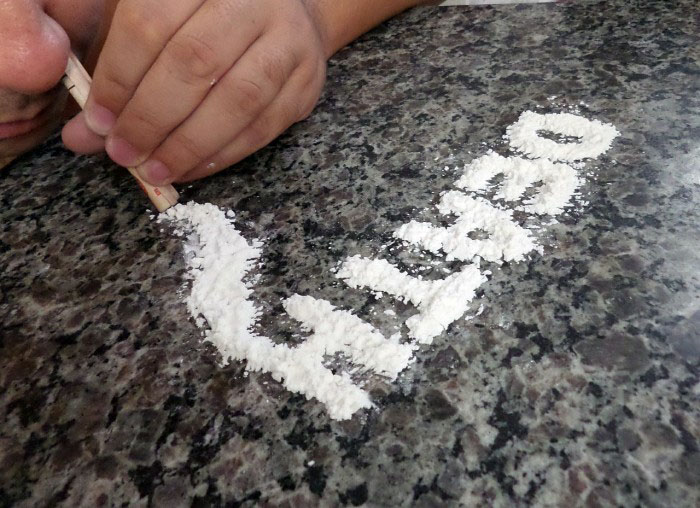Here at The Ranch PA treatment center, we understand that substance abuse is a complex issue. Everyone has unique reasons for using substances, and oftentimes, for choosing specific ones. Phencyclidine, or PCP, is commonly referred to as a “party drug.” This means that it is often used at clubs or large parties among younger people. PCP is dangerous and highly addictive, but The Ranch PA is here to help you break free from its grip. Through a variety of addiction treatment options provided in a calm and nurturing setting, we’ll give you the tools you need to get and stay sober from PCP.
What Is PCP?
PCP is a white or colored powder known on the street as:
- Angel dust
- Rocket fuel
- Supergrass
- Happy stick
- Wet stick
- Embalming fluid
It is a hallucinogen, which means it alters one’s perception of sight and sound. It’s also a dissociative anesthetic, making one feel detached from themselves and surroundings. PCP dissolves in alcohol and water and is sometimes added to other drugs like marijuana, methamphetamine and LSD. The drug has a chemical taste and comes in capsule, powder and tablet form. Users snort, inject, ingest or smoke the drug. Its effects depend on how much the user takes.
PCP Addiction Risks
There are many reasons PCP abuse and addiction is extremely dangerous. Consuming the drug can cause violent, aggressive behavior. This includes self-mutilation which can lead to accidental death. Short-term effects of PCP may include:
- Problems concentrating
- Slurred speech
- Erratic or unexpected behaviors
- Loss of coordination
- Delusions
- Irregular heartbeat and low blood pressure
- Unusual aggressive behavior
- Numbness of body
- Anxiety or panic
- Tense muscles
Long-term use of PCP can lead to the following symptoms:
- Spontaneous flashbacks
- Ongoing speech difficulties
- Ongoing severe depression or anxiety
- Amnesia or memory loss
- Catatonia
- Increased risk of suicidal thoughts
- Ongoing psychosis, hallucinations and delusions.
Because PCP is illegally manufactured, there’s no way to control the strength of the drug. A high dosage of PCP can cause coma and overdose. Even sporadic PCP use may cause HPPD, or hallucinogen persisting perception disorder. HPPD results in symptoms that mimic schizophrenia, which may last for months or years after hallucinogen use.
Detoxing from PCP
If you use PCP regularly, you’ll likely experience withdrawal symptoms once you stop taking the drug. These symptoms can be dangerous and unpredictable. PCP withdrawal may cause:
- Depression
- Drug craving
- Increased appetite
- Increased need for sleep
You may also continue to experience psychosis or agitation from the high during detox, putting yourself or others at risk of harm. Every detox experience is different, so detoxing in a medical setting is the best course of action. The Ranch PA’s medically supervised detox program surrounds clients with a team of doctors, nurses and therapists to ease symptoms and emotional distress. Qualified staff helps users withdraw from the effects of PCP by regulating breathing, body temperature and circulation. They will also help you manage the psychiatric symptoms of withdrawal. After detox, residential treatment will help you explore the reasons that led you to use and become addicted to PCP. The Ranch PA works with you to create a comprehensive treatment plan tailored to meet your individual needs. We provide a progressive, holistic recovery strategy in a small, community-oriented environment. Learn below about the many recovery option strategies and additional supports we offer.
Drug & Alcohol Rehab
Our Drug and Alcohol Rehab center offers comprehensive inpatient treatment. This program is designed to help you explore underlying factors of addiction, including mental health issues or an unhealthy peer network. Our residential treatment program allows you to step back from your social environment and self-reflect. We offer individual therapy, group therapy, 12-step meetings and alternatives to 12-step meetings.
Dual Diagnosis Treatment
Our treatment program was specially designed for those with a dual diagnosis, or co-occurring disorder. Co-occurring disorders are when substance abuse occurs along with a mental health disorder. These may include depression, anxiety or PTSD. If you’re struggling with an underlying mental health disorder, we can address both issues at the same time. Clients receive a thorough assessment to confirm their dual diagnosis and then receive a treatment plan tailored to their needs.
Pain Management
Clients can add pain management care to our alcohol and drug rehab and dual diagnosis program. Our clinicians take an interdisciplinary approach, working with both board-certified addiction medicine and osteopathic physicians. This additional treatment is appropriate for those abusing prescription drugs in addition to PCP. It aims to teach clients who struggle with pain to manage their condition in a healthy and sober way.
Additional Therapies at The Ranch PA
The Ranch PA also offers a variety of traditional and alternative therapies to suit our clients’ individual interests and coping strategies. These include:
- Psychodrama
- 12-step programs and 12-step alternatives
- Biofeedback
- Pilates
- Hypnotherapy
- Music and art activities
- Acupuncture
- Reiki
- Reflexology
- Raindrop Therapy
PCP Rehab at The Ranch PA
Those who suffer from PCP abuse and addiction must seek PCP rehab treatment immediately. The elimination of PCP from the body can take a significant amount of time, so inpatient detox and follow-up treatment are essential. The best place to do this is at The Ranch PA treatment center. Our experienced, qualified staff has helped many PCP users recover from the severe negative effects of addiction. If you’re stuck in the grip of PCP addiction, please contact us to start the process of recovery.

